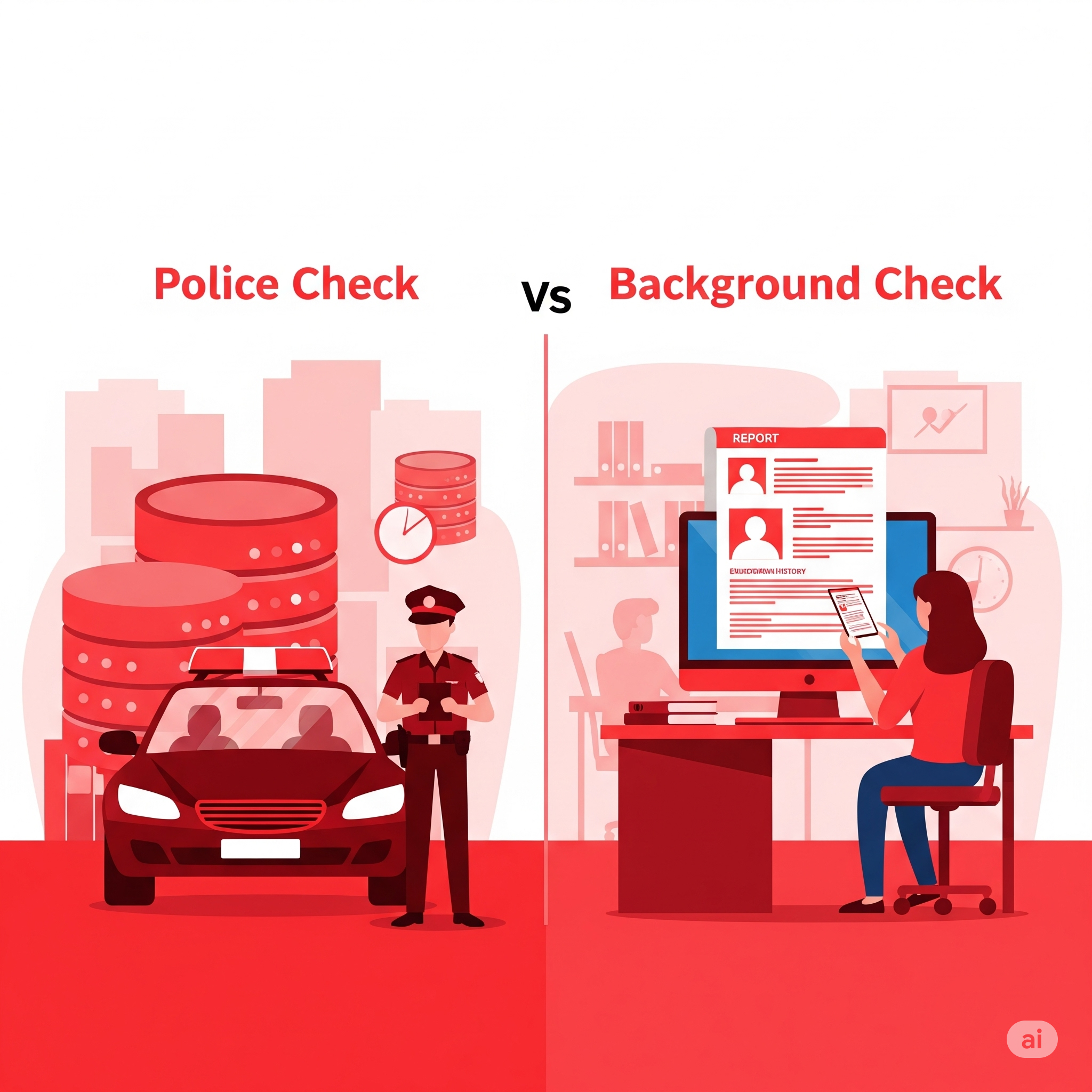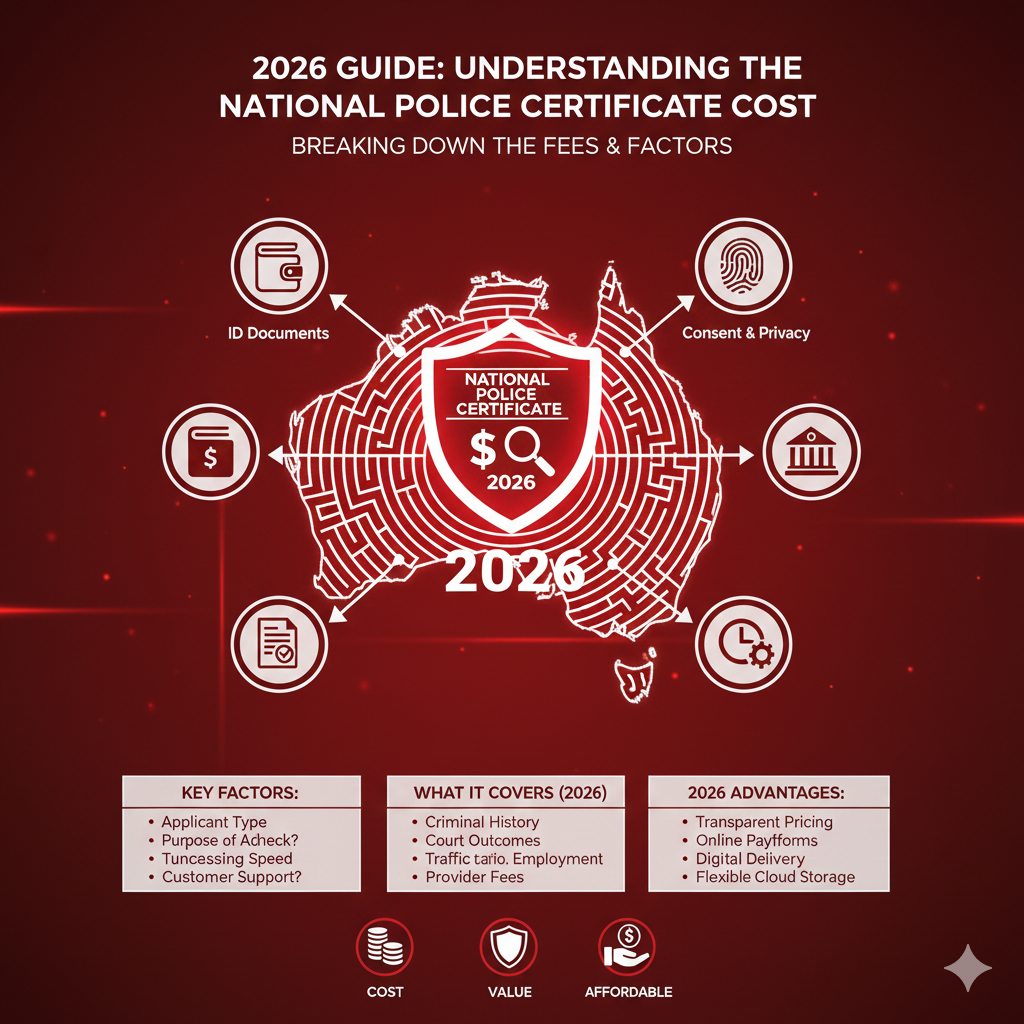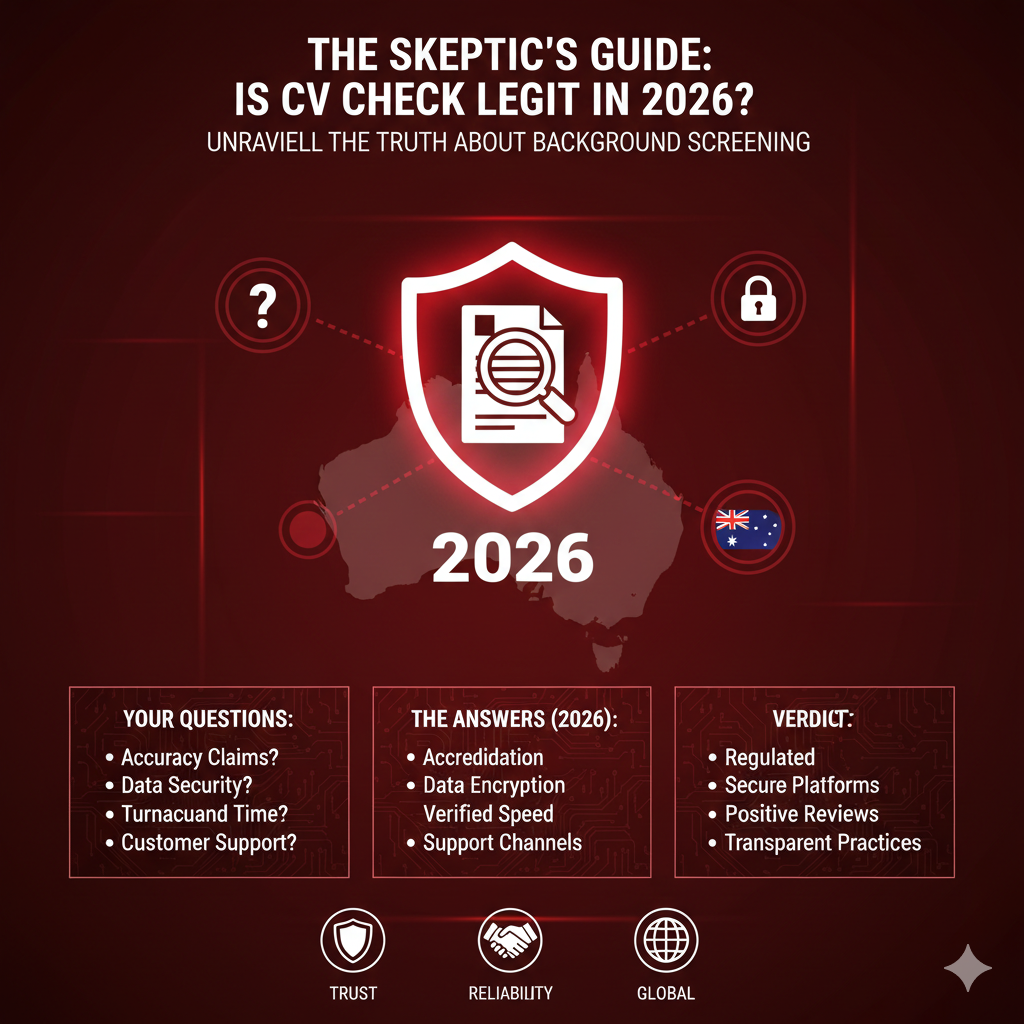While screening candidates is important for employers to build a reliable and safe workforce, such processes before hiring are never too much. When referring to someone’s history, two of the most common terms that are usually called upon are a police check and a background check. While often treated as the same thing, they have different applications, and their information content varies.
It then assists employers and applicants to know what check may be necessary in any given situation. Rapid Screening provides Police Checks as well as full background checks, customised based on individual industry and regional requirements, for example, Background Check WA.
Key Differences of Police Check and a Background Check?
Understanding the basics of the difference between a police check and a background check can easily clarify which is better for a particular role or purpose. A summary of some of the primary difference between a police check and a background check is explained below:
Police Checks
These checks occur in organisations whose safety and trust are a key focus. From the health sector to teaching, childcare, and even aged care sectors, most of them demand a detailed knowledge of the difference between a police check and a background check from employees. An employer in South Australia may ask a person for a Police Check SA, for instance, just to ensure that they have minimal safety standards
This check basically revolves around a criminal review of the individual. It might include past convictions, current charges, as well as cases of offenses in particular jurisdictions.
Background Checks
People generally prefer these background checks at higher or sensitive levels, like finance or corporate organizations, or jobs related to governments, because long histories are believed to be useful.
While a background check is more holistic. It may cover employment verification, education history, and financial checks, as well as criminal history.
Companies requiring in-depth information regarding diverse aspects of a candidate’s background often opt for a full background check. Most individuals appointed for the exercise of high-ranking government powers, such as some at Background Check WA.
Rapid Screening can offer concentrated solutions, and the details of background information of various industries’ employers would be attained. Turnaround Times Police Checks Generally, the difference between a police check and a background check is that a police check is faster than all other forms of background checks, which take hours or just a few days. They are very apt for jobs that require speedy verification, such as casual and part-time work.
With increased scrutiny in the verification process, such as employment and education checking, background checks might take a few days or even up to a week, depending on the level of detail.
Legal Compliance and Requirements
The difference between a police check and a background check can also be that some jobs require police checks, especially in areas that are legally and normatively mandated in trust positions. Many government and healthcare organizations enforce police checks to ensure a safe environment for clients and the public at large.
Organizations whose management or executive roles demand thorough history checks legally demand background checks. So it’s important to understand the difference between a police check and background check. A background check safeguards the reputation and integrity of an organisation. An openness characterises the working environment; for instance, finance or government institutions engage in open and transparent operations; therefore, conducting background checks presents a chance for this.
Privacy and Candidate Consent
Other than that, the difference between a police check and a background check can be that police checks are less intrusive as they address criminal records rather than personal sectors. They are easier to obtain, and there are fewer requirements of documents from applicants.
Why the Employer Would Prefer One over the Other
The type of check really depends on the nature of information considered valuable enough for that job. A police check would be effective for jobs that only require basic verification, in the event that a criminal history raises a concern, much like some healthcare roles manage to get through with a Police Check SA.
More Exposed Profiles
Recruiters associated with organizations holding significant authorities on funds, powerful legal mandates, or government powers like to employ the background check procedure. Like in the case of Background Check WA, they have a more 360-degree view of the applicant. It’s vital to know the difference between a police check and background check.
Benefits of Partnering with Rapid Screening for Police and Background Checks
Rapid Screening provides the most tailor-made solutions based on the screening needs of businesses within sectors. Here is how Rapid Screening stands apart:
Compliance
Rapid Screening ensures that all checks are compliant with national and state regulations that include Police Check SA or Background Check WA.
Fast Turnaround
Rapid Screening will undertake a streamlined process to deliver results within a quick turnaround even on the most detailed checks, often involving multiple verification tiers.
Comprehensive Options
Companies can opt for checks customized for the specific job’s requirements, ensuring that the information gathered is relevant and valuable.
Ease of Use
The Rapid Screening process is simple and easy to understand and operates based on easy accessibility to employers and applicants for quicker, simpler, and even more effective service.
Choose the appropriate check to match your needs, and it’s not always necessary to do a police check.
The police background checks are merely to provide information related to criminal history. It takes a relatively short period of time, and it best suits businesses dealing with urgent issues of safety, such as health, childcare, and aged care.
More suitable for jobs that demand scrutiny of one’s personal history, professional credentials, and integrity in financial matters, which are highly in demand in the finance, corporate, and government industries.
Conclusion
While the difference between a police check and a background check provides a necessary tool in the recruitment process, they are different both in their goal and the information collected. Police checks target the individual’s record of crimes committed, which is good for health care, education, and careers in childcare because the person needs to be safe. Background checks offer a broader history of the potential employee and embrace sectors like employment, education, and the history of financial stability.
The difference between a police check and a background check is industry-specific, tailored solutions provided by Rapid Screening. The company offers both police and background checks that are customized to suit the needs of various industries. There is a Police Check SA for roles in South Australia and a Background Check WA for roles in Western Australia. A partnership with Rapid Screening will ensure a safe, efficient, and compliant hiring process, giving employers confidence in their recruitment decisions.
Frequently Asked Questions (FAQs)
Q) What is the difference between a police check and a background check?
A police check focuses solely on an individual’s criminal history, including past convictions or pending charges. A background check, on the other hand, offers a broader view, covering not just criminal records but also employment history, educational qualifications, credit checks, and professional references, depending on the role and industry.
Q) When should companies use a police check instead of a background check?
Employers typically request a police check when they need to quickly assess criminal records for roles where safety and trust are essential, such as in healthcare, childcare, aged care, and education. It’s ideal for basic screening or where legal compliance mandates it.
Q) Why choose a full background check over a police check?
Companies choose background checks for higher-risk or sensitive roles, especially in finance, legal, or government sectors, because they provide a more complete picture of a candidate’s history, such as their work experience, qualifications, and creditworthiness.
Q) Does background checks take more time than police checks?
Yes. Police checks are typically faster, often completed within 24–72 hours, while background checks can take several business days, depending on the depth of information required, such as employment or education verifications.
Q) Are police checks and background checks legal to conduct in Australia?
Yes. Both checks are legally permitted in Australia, provided they are conducted with the individual’s informed consent and comply with privacy regulations and Fair Work principles. Employers must ensure checks are relevant to the position being offered.
Q) Do all industries require both police and background checks?
Not always. Some industries, like childcare or aged care, may only require a police check for safety purposes. However, industries such as finance, banking, and government agencies often require a full background check to meet compliance standards.
Q) What is included in a police check from Rapid Screening?
A Rapid Screening police check includes a national criminal history check. It lists disclosable court outcomes, pending charges, and serious convictions, based on Australian police records. Regional options like Police Check SA ensure local compliance.
Q) What information does a background check from Rapid Screening cover?
A background check from Rapid Screening may include:
- Criminal history check
- Employment history and references
- Education and qualification verifications
- Credit history or financial checks
- Professional licences validation
Services are tailored by location, such as Background Check WA, to meet industry-specific compliance.
Q) Do I need the candidate’s consent to run either check?
Yes. Whether you’re conducting a police check or a background check, written consent from the candidate is mandatory under Australian privacy laws. Rapid Screening ensures all checks follow legal and ethical standards.
Q) How can I decide which check is right for my business?
The decision depends on your industry, job role, and regulatory requirements. If you’re hiring for a safety-sensitive or trust-based position, a police check may be enough. For executive roles, finance, or government contracts, a full background check is recommended. Rapid Screening can guide you in choosing the right check based on your hiring goals and compliance needs.




